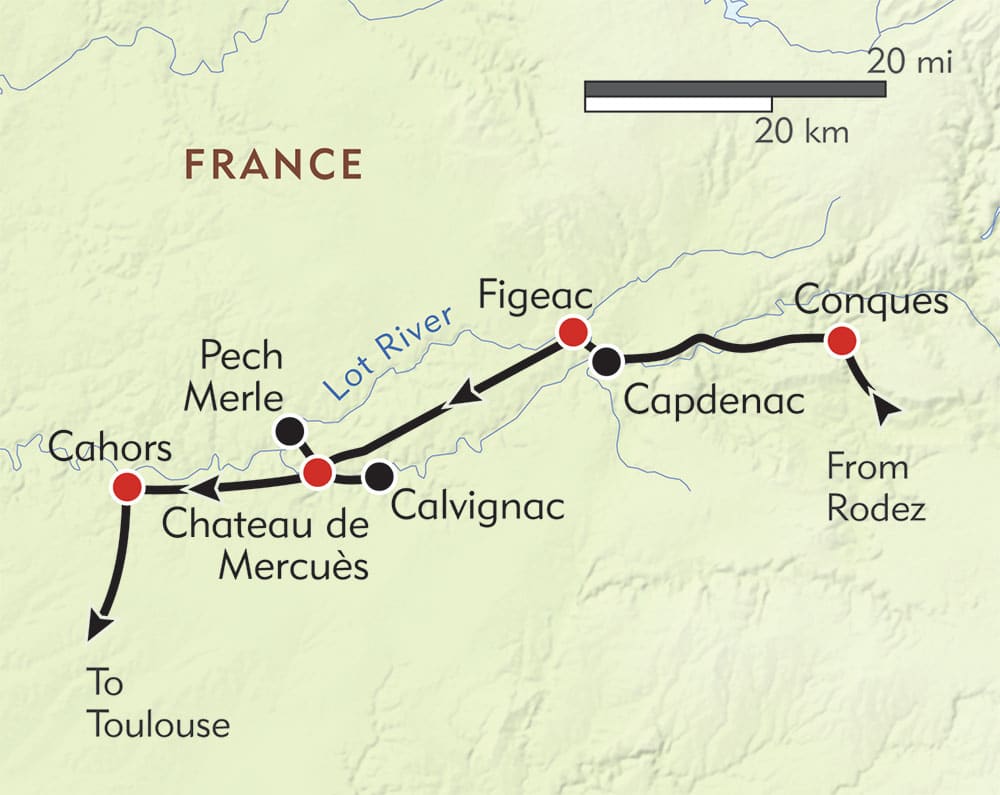Are you ready to witness the world’s most prestigious cycling event, the Tour de France? If you’re wondering “When is the Tour de France?” then mark your calendars for this exciting spectacle! The Tour de France, known for its challenging routes and fierce competition, takes place annually in the month of July. Professional cyclists from around the globe gear up for this adrenaline-pumping race that spans over three weeks and covers breathtaking landscapes of France.
This iconic race isn’t just a test of physical endurance but also a showcase of strategic team tactics and individual resilience. So, if you’re a cycling enthusiast or simply enjoy thrilling sporting events, get ready to immerse yourself in the excitement of the Tour de France!
Introduction: Understanding the Significance of the Tour de France
The Tour de France, a prestigious cycling event, captivates audiences worldwide with its thrilling races and storied history. This annual competition showcases the endurance, skill, and teamwork of cyclists as they navigate challenging terrains across France.
Evolution of the Tour de France
Since its inception in 1903, the Tour de France has evolved into a celebrated sporting event that tests the limits of human capabilities. Over the years, it has become a symbol of determination, perseverance, and sportsmanship.
The 2022 Tour de France promises to uphold the tradition of excellence and excitement, drawing in cycling enthusiasts and casual spectators alike.
Impact on Cycling Culture
The Tour de France plays a crucial role in shaping the landscape of professional cycling and inspiring a new generation of riders. Its global reach and intense competition have elevated the sport to new heights, garnering a devoted following around the world.
- It spotlights the talents of elite cyclists
- It showcases picturesque French landscapes
- It ignites passion for cycling among fans

History of the Tour de France: A Legacy of Cycling Tradition
The Tour de France, an iconic cycling event, typically takes place in July each year. This prestigious race first started in 1903 and has since become the most famous cycling tour globally.
Early Beginnings
The Tour de France was created by Henri Desgrange, a French cyclist, and journalist, as a means to boost sales for the newspaper “L’Auto.” The first race consisted of six stages and covered a total distance of 2,428 km.
Growth and Evolution
Over the years, the Tour de France has grown in popularity and significance, attracting top cyclists from around the world. The race now spans over 21 stages, covering diverse terrains and challenging routes.
Since its inception, the Tour de France has captivated audiences with its thrilling races, historic moments, and iconic champions.
Evolution of the Tour: Changes Over the Years
The Tour de France, one of the most prestigious cycling events, has evolved significantly over the years to become the grand spectacle it is today. From its humble beginnings in 1903 to its current global phenomenon status, the tour has seen numerous changes and adaptations.
Introduction of New Routes
Every year, the Tour de France organizers introduce new routes and stages to keep the race challenging and exciting for both the cyclists and fans. These changes often impact the strategies and dynamics of the competition, making each edition unique and unpredictable.
One notable change in recent years was the inclusion of more mountain stages, testing the riders’ climbing abilities to the limit.
Technological Advancements
Advancements in technology have revolutionized the Tour de France, with the introduction of carbon fiber bikes, aerodynamic gear, and data-driven performance analysis. These innovations have enhanced the competitiveness of the race and pushed cyclists to new heights of performance.
- Integration of GPS tracking systems for real-time monitoring
- Use of advanced nutrition plans and recovery methods
- Improved aerodynamics through wind tunnel testing

Key Dates and Schedule: When is the Tour de France?
If you’re wondering when is the Tour de France happening this year, get ready to mark your calendars for the cycling spectacle! The Tour de France, one of the most prestigious cycling events, typically takes place in the month of July.
2022 Tour de France Dates
The 2022 Tour de France is scheduled to kick off on Friday, July 1st, 2022, with the Grand Departure from Copenhagen, Denmark. The race will cover a total distance of approximately 3,500 kilometers over three weeks.
Key Stage Dates
Here are some of the key dates to look out for during the 2022 Tour de France:
- July 5th, 2022: First Mountain Stage in the Alps
- July 18th, 2022: Second Rest Day in Andorra
- July 24th, 2022: Final Stage on the Champs-Élysées in Paris
Route and Stages: Exploring the Challenging Course
Embark on a journey where cyclists test their limits on challenging terrains and iconic routes. The Tour de France, known for its demanding course, offers a spectacle of athleticism and endurance.
Mountain Stages
These stages showcase breathtaking climbs through the Alps and the Pyrenees, pushing riders to their physical and mental boundaries. The sheer gradients and thin air make it a test of resilience.
Cyclists conquer the mountains amidst cheering crowds, aiming to gain crucial time advantages.
Cobbles and Time Trials
From cobbled streets to time trial courses, riders must excel in different disciplines to excel in the Tour de France. The cobbled sections pose a challenge with their uneven surfaces testing the riders’ handling skills.
- Time trials demand maximum speed and endurance against the clock.
- The variety of stages highlight the versatility of cyclists.
Riders to Watch: Top Contenders and Teams
As the Tour de France approaches in 2022, cycling enthusiasts are eager to see which riders will dominate the event. With the latest data available, several top contenders and teams are poised to showcase their skills in this prestigious race.
Top Contenders
It comes as no surprise that riders like Egan Bernal, Tadej Pogacar, and Primoz Roglic are among the top contenders for this year’s Tour de France. These talented cyclists have consistently delivered outstanding performances.
Leading Teams
Teams such as Ineos Grenadiers, Team Jumbo-Visma, and UAE Team Emirates have been strong competitors in recent years. Their strategic teamwork and exceptional talent have earned them a place as leading teams in the race.
- Ineos Grenadiers: Known for their strong team dynamics and exceptional climbers.
- Team Jumbo-Visma: A force to be reckoned with in time trials and sprint finishes.
- UAE Team Emirates: Consistently showcasing their strength in the mountains and breakaway stages.
Exciting Moments: Memorable Highlights of the Tour
One of the most thrilling moments during the Tour de France is witnessing the intense mountain stages where cyclists battle it out on challenging ascents and descents, showcasing their unparalleled determination and skills.
Iconic Sprints and Photo Finishes
Year after year, fans are captivated by the heart-stopping sprints and exhilarating photo finishes at the finish lines, where cyclists give their all to clinch victory.
These moments are etched in the memory with dramatic flair.
Breathtaking Scenery and Landscapes
Cycling enthusiasts are treated to breathtaking views of the French countryside as the peloton weaves through picturesque villages, lush vineyards, and stunning mountain backdrops.
- Rolling hills
- Spectacular coastlines
- Historic landmarks
Behind the Scenes: Organizing the Cycling Spectacle
Organizing the Tour de France, a cycling spectacle like no other, requires meticulous planning and coordination. From route selection to security arrangements, every detail is crucial to the success of this iconic event.
Route Planning and Logistics
The Tour de France route is carefully crafted each year to showcase the diverse landscapes and challenging terrains of France. Logistics teams work tirelessly to ensure smooth transportation of teams, equipment, and spectators throughout the event.
Security and Crowd Management
With millions of spectators lining the streets to catch a glimpse of their favorite cyclists, security is a top priority. Trained personnel and advanced surveillance systems are in place to ensure the safety of everyone involved.
Impact of the Tour: Cultural and Economic Effects
The Tour de France, a prestigious cycling event, has significant cultural and economic effects on the regions it traverses. The race showcases the diverse French culture and heritage to a global audience, promoting tourism and celebrating local traditions.
Cultural Influence
The Tour de France contributes to cultural exchange as it passes through various regions of France, each with its own unique identity. It highlights the scenic landscapes, historic landmarks, and culinary delights of the country.
The race also fosters a sense of community among spectators and participants, bringing people together to cheer for their favorite cyclists and share in the excitement of the event.
Economic Impact
The Tour de France boosts the local economy of the towns and cities along its route by attracting tourists who contribute to revenue generation through accommodation, dining, and shopping.
In addition, the race creates opportunities for local businesses to market their products and services to a broader audience, increasing brand visibility and supporting the overall economic development of the region.
Frequently Asked Questions
- What is the Tour de France?
- The Tour de France is a prestigious cycling race held annually in France, known for its challenging courses and elite participants.
- When will the Tour de France take place?
- The Tour de France typically takes place in the month of July, spanning over three weeks with multiple stages of racing.
- What are the dates for the upcoming Tour de France?
- The specific dates for the Tour de France vary each year, but it usually starts in late June and finishes in July. Check the official schedule for the exact dates of the upcoming race.
- Where does the Tour de France take place?
- The Tour de France route changes each year, but it traditionally starts in different locations throughout France and sometimes extends to neighboring countries.
- How can I watch the Tour de France?
- The Tour de France is broadcasted live on television and online streaming platforms. Check with your local sports channels or online platforms for coverage details.
Final Thoughts: Don’t Miss the Tour de France!
Now that you know when is the Tour de France, mark your calendars for this exhilarating cycling spectacle that captivates audiences worldwide. The Tour de France typically takes place in July, with the exact dates varying each year. This iconic event showcases the unparalleled athleticism and endurance of elite cyclists as they conquer challenging terrains across France. Whether you’re a cycling enthusiast or simply appreciate world-class sporting events, the Tour de France is a must-watch experience. So, gear up for an unforgettable journey filled with passion, competition, and triumph. Join millions of viewers in witnessing history in the making at the Tour de France!


